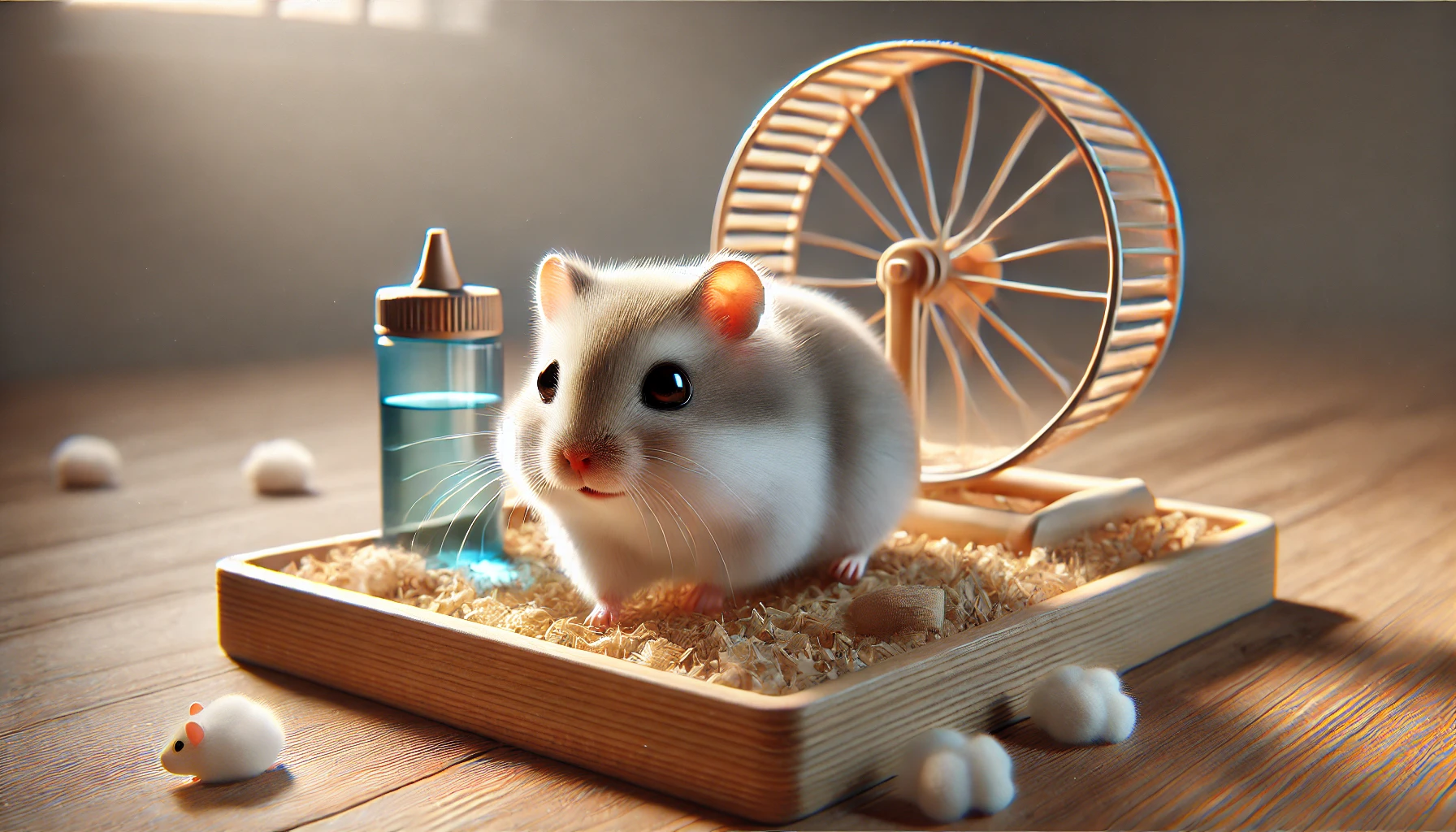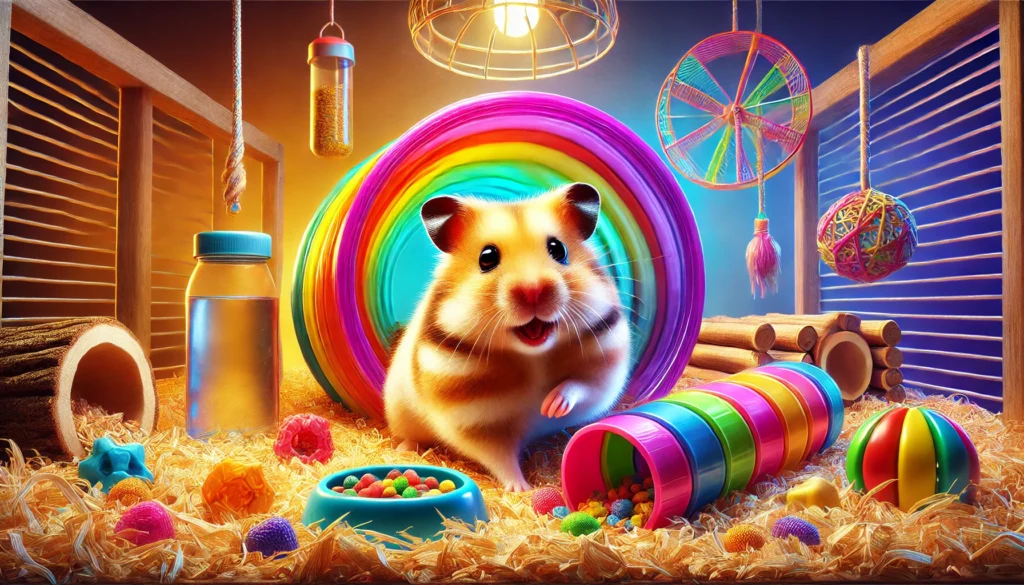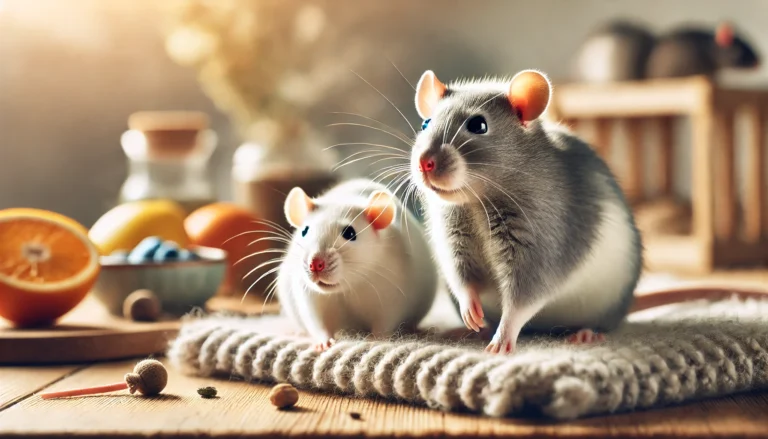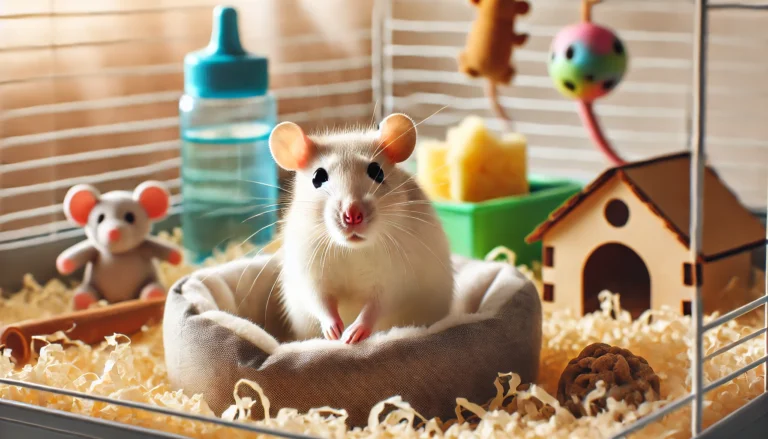How Long Do Hamsters Live? Know amazing information

Introduction to How Long Do Hamsters Live
Hamsters are one of the most popular pets around the globe, thanks to their adorable looks and manageable care requirements. Whether you’ve just welcomed a new furry friend into your home or are considering getting one, understanding the lifespan of a hamster is crucial. This comprehensive guide will cover everything from the life cycle of different hamster breeds to factors that can influence their longevity.

Section 1: Types of Hamsters and Their Lifespans
Syrian Hamsters: The Solitary Pet
Often referred to as ‘Golden Hamsters’ or ‘Teddy Bear Hamsters,’ Syrian hamsters are the largest of the pet hamster breeds and typically have a lifespan of 2 to 3 years. These hamsters are known for their solitary nature, requiring individual housing beyond ten weeks of age to avoid stress and aggression.
Dwarf Hamsters: Small and Social
Dwarf hamsters, which include breeds like the Campbell’s, Roborovski, and Winter White, generally live for about 1.5 to 3 years. The Roborovski Dwarf boasts a longer lifespan, occasionally reaching up to 3.5 years. Unlike Syrians, Dwarf hamsters can live in same-sex pairs if introduced properly at a young age, providing social interaction that can enrich their lives.
Section 2: Factors Influencing Hamster Longevity
Genetics and Lifespan
A hamster’s lifespan is heavily influenced by its genetics. Syrian hamsters, for instance, may have predispositions to certain diseases like diabetes, particularly when they carry the gene for long hair or the characteristic chubby hamsters’ appearance.
Optimal Diet for Health and Longevity
Diet plays a pivotal role in the longevity of a hamster. A well-balanced diet consisting of hamster pellets, fresh vegetables, and occasional fruits can help prevent obesity and support a healthy life cycle. Avoid sugary and high-fat treats to prevent health issues such as diabetes, especially in Dwarf hamsters known for their susceptibility to this condition.
Do you know?
Providing a balanced diet tailored to the specific needs of your hamster is crucial for their overall health and happiness. Regularly consult with your veterinarian to ensure that your hamster’s dietary needs are being met, especially if you notice changes in their eating habits or general health. With the right care and a proper diet, your hamster can lead a long, healthy, and joyful life.
The Importance of Exercise
Exercise is crucial for maintaining a hamster’s health and extending its lifespan. A hamster wheel and maze-like tunnels can provide excellent physical activity, while toys and occasional out-of-cage time can offer mental stimulation.
Section 3: Environmental Impact on Hamster Lifespan
The Role of Housing
The type of cage and its setup can significantly affect a hamster’s lifespan. Spacious cages with proper bedding, devoid of harmful chemicals or sharp objects, ensure a safe living environment. Temperature and humidity levels should be monitored as extreme conditions can lead to health problems.
Understanding Aging in Hamsters
As hamsters age, they may show signs of slowing down or changes in behavior, such as sleeping more or becoming less active. These signs can indicate that a hamster is entering the final phase of its life cycle.
Section 4: Health Care and Common Diseases
Preventative Health Measures
Regular check-ups with a veterinarian can catch early signs of illness. Common ailments in hamsters include respiratory infections, tumors, and dental issues. Early detection and treatment can considerably improve their prognosis and extend their lifespan.
Section 5: Enhancing Quality of Life
Daily Care and Routine
Maintaining a consistent routine with regular feeding, cleaning, and interaction can help reduce stress and improve a hamster’s quality of life. Enrichment activities, such as exploring new environments and interacting with toys, can keep a hamster engaged and mentally sharp.
Conclusion of How Long Do Hamsters Live
Understanding how long hamsters live is just the beginning. By providing proper care, a suitable environment, and regular veterinary check-ups, you can ensure your pet lives a full, happy life. Whether you have a Syrian hamster or a Dwarf breed, each day with your furry friend can be rewarding as you watch them thrive under your care.
Do hamsters need a friend?
Hamsters are primarily solitary animals, especially the Syrian hamster, which must be housed alone to prevent stress and fighting. However, some species of Dwarf hamsters, such as Campbell’s, Roborovski, and Winter White, can live with a same-sex companion if they are introduced early and carefully, as they are more sociable and can benefit from the companionship.
What diseases can hamsters give you?
Hamsters can potentially transmit diseases to humans, the most notable being salmonella and the lymphocytic choriomeningitis virus (LCMV), which can cause flu-like symptoms. Transmission can occur through direct contact with hamsters or their droppings. Proper hygiene practices, such as washing hands after handling a hamster or cleaning its cage, are crucial to prevent these diseases.
What is the best hamster lifespan?
The best lifespan for a hamster largely depends on the species and the quality of care provided. Roborovski hamsters typically have the longest lifespan, often living up to 3 to 3.5 years in captivity under ideal care conditions. Providing a clean environment, a nutritious diet, and regular veterinary care can help maximize a hamster’s lifespan.
How long do indoor hamsters live?
Indoor hamsters generally live around 2 to 3 years, depending on their breed and the quality of care they receive. The controlled environment of living indoors, where threats from predators are eliminated and food and water are consistently available, contributes to this lifespan.
What is the most common cause of death for hamsters?
The most common causes of death in hamsters are typically related to old age, such as organ failure and tumors. Other common causes include heart disease, respiratory infections, and accidents within the cage (such as injuries from improper toys).
What shortens hamster lifespan?
Several factors can shorten a hamster’s lifespan, including poor diet, lack of exercise, stress, unclean living conditions, and inadequate veterinary care. Genetic factors and breeding quality also play a significant role in determining the overall health and longevity of hamsters.
What gender hamster lives longer?
There is no conclusive evidence to suggest that one gender of hamster lives significantly longer than the other. The lifespan of a hamster is more influenced by factors such as genetics, care, diet, and living conditions rather than by gender.
How old are the hamsters at PetSmart?
Hamsters sold at PetSmart are typically weaned and sold when they are about 4 to 6 weeks old. This age allows them to eat solid food independently and adjust to a new home environment without the mother.
Why do hamsters only live 2 to 3 years?
Hamsters have a naturally short lifespan, which is genetically determined. They age much faster than many other mammals, which is why even with optimal care, they typically live only 2 to 3 years. This rapid aging process is typical for many small rodent species.
What makes a hamster live longer?
Providing a clean, safe, and stimulating environment, along with a balanced diet and regular veterinary care, can significantly increase a hamster’s lifespan. Minimizing stress by providing adequate space, proper bedding, and enrichment activities such as exercise wheels and tunnels also contributes to their longevity.
Why do hamsters stay up all night?
Hamsters are nocturnal, meaning they are active during the night and sleep during the day. This behavior is an evolutionary adaptation to avoid predators in the wild during daylight hours. In a domestic setting, this natural behavior continues, which is why hamsters are often seen running on their wheels and exploring their cages at night.
What foods make hamsters live longer?
A diet that can help extend a hamster’s life includes high-quality hamster pellets as the base, supplemented with fresh vegetables like carrots, broccoli, and spinach, and occasional fruits such as apples and berries. These foods provide essential nutrients and help prevent obesity and related health issues. Avoiding sugary, high-fat treats and toxic foods like onions and garlic is also crucial for maintaining their health and longevity.



